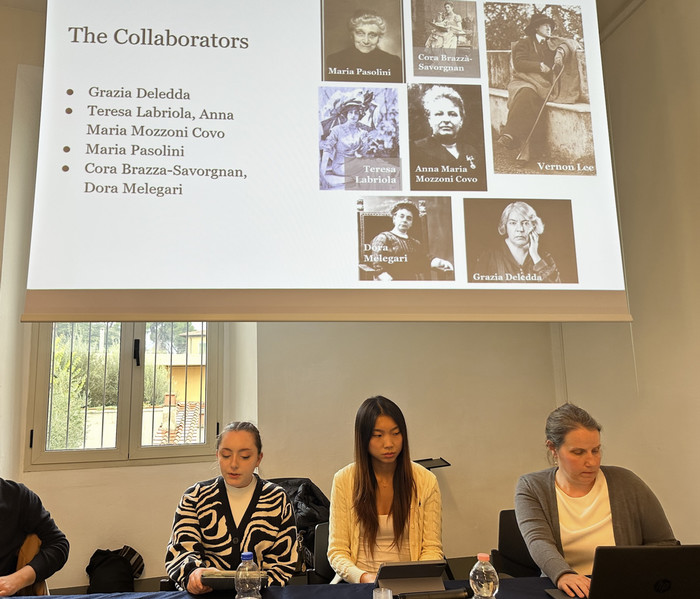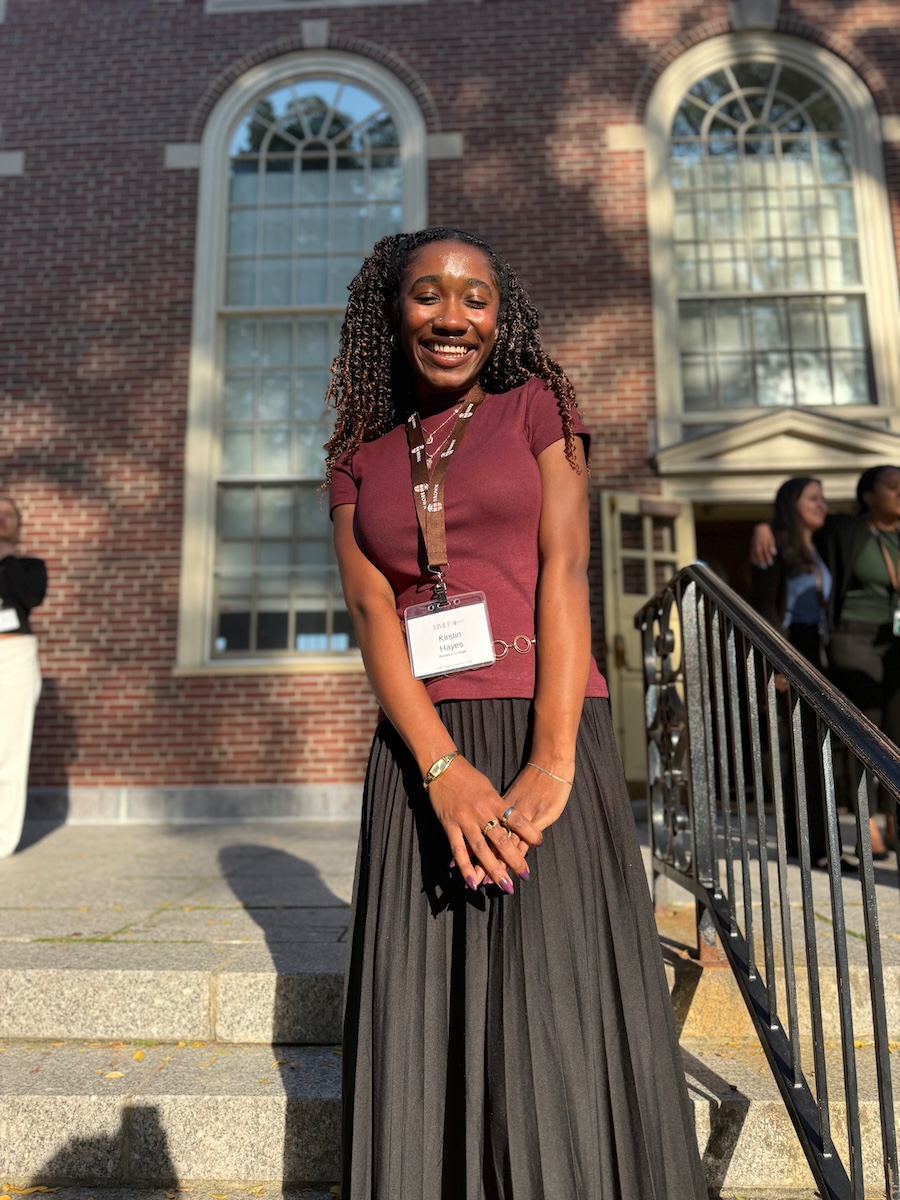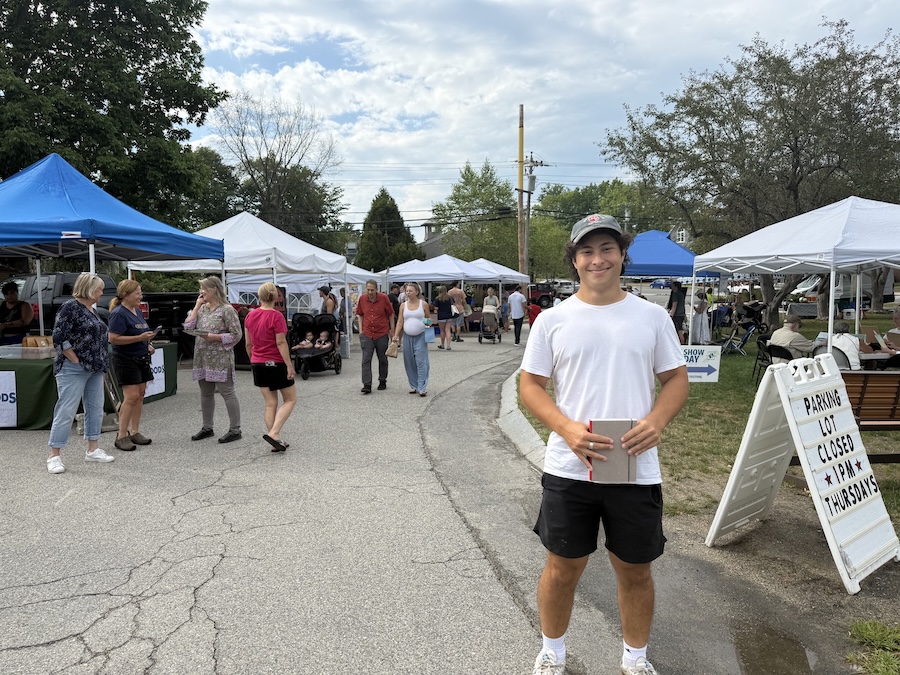Senior Digs Into the Psychology of Climate Change Denial
By Rebecca Goldfine
O’Connell is an environmental studies and government double major, and a psychology minor. Over the course of his college education, he noticed what he came to see as an important missing gap in the scientific and scholarly literature that has been produced on climate change. While the science seemed clear, the prospects for taking action on climate change remained ambiguous. One problem is that many individuals do not accept what climate scientists insist are the facts.
“Individual decisions and actions, the human element, are a vastly overlooked part of the problem,” O’Connell commented recently in an interview. “I wanted to do research to bring that element into more light.”
So for the past year, O’Connell has been gathering and interpreting data on what could be driving many individuals in the United States to insist that climate change is not real or not harmful. He’s also studying what motivates some in this country to take action to curb their carbon footprint while others remain unmoved. “I’m trying to determine what the psychological factors are that lead to climate change denial being so prominent in the US,” he said.
The United States’ population has historically led the Western world in climate change denial (along with carbon emissions). In contrast, Germany, the Netherlands, and France score the highest on climate change acceptance, at least for the Western world. (In general, Africa and Asia tend to score much higher on climate change belief, especially the small island nations in the South Pacific that have already lost large portions of land to rising sea levels.) But only one country’s population appears to be actually “internalizing” climate change — which means not only accepting it, but feeling the responsibility to take individual steps to combat it. “In Germany, studies have been done that suggest Germans will forego going on a long-distance vacation, something that has inherent value to them, to reduce their impact on climate change,” O’Connell said.
To begin to understand the reasons for our different dynamic in the US, O’Connell designed a survey that would both reveal respondents’ personality traits and their climate change opinions. It also elicited information about political leanings and socioeconomic status, and a few biographical details, such as whether respondents have children. He sent the survey out via Amazon Mechanical Turk and paid for it with a Grua-O’Connell Research Award from Bowdoin.
The survey received 3,000 responses from a diverse group of people around the country, from every state.
The analysis of his results so far points to some strong correlations between personality traits — specifically self-esteem and proneness to guilt and shame — and climate change attitudes.
- One correlation that appears in the data is that people with a high proneness to guilt and shame not only tend to believe in climate change but also are taking the most actions to reduce their contribution to climate change.
- The majority of people who reported low self-esteem also reported high levels of belief in climate change. But they reported that they were not taking actions to reduce their impact on climate change.
- Interestingly, when you control for age, people with children are far more likely than their childless peers to believe in climate change. “My belief is that they had a stake in the future, they have children to worry about,” O’Connell said. “And because climate change is a long-term issue, they were more likely to believe in it and see it as a risk.” However, parents did not appear to internalize their climate change contributions and take action, perhaps, O’Connell surmises, because they tend to care about their family unit more than they care about society.
- O’Connell additionally found that white men who identified as conservative are the least likely to acknowledge climate change’s reality. He attributed this to the fact that as the group that has historically reaped most of the benefits from our current social structures and energy exploitation, white men also have the most to lose if society has to restructure to combat climate change.
- And while the majority of the respondents do believe in climate change, a smaller majority said they do not believe it poses a threat to people in the US or themselves. O’Connell said this is the a psychological block people must overcome.
O’Connell attributes his interest in this research topic to growing up in a conservative family while attending liberal-leaning schools — Choate Rosemary Hall in Connecticut and Bowdoin. “I have role models on both side of the political spectrum,” he said. “And trying to communicate about issues like climate change that are founded in facts but so politicized has been intriguing to me.”
After Bowdoin, he said he hopes to continue working in the environmental field, helping to shift the way we use energy and interact with our environment. His interdisciplinary research at Bowdoin, he added, will give him a foundation in navigating work that, in order to be successful, relies on changing people’s behaviors. “…Doing environmental consulting or trying to implement policy is hard without understanding how people respond to those policies,” he said.



